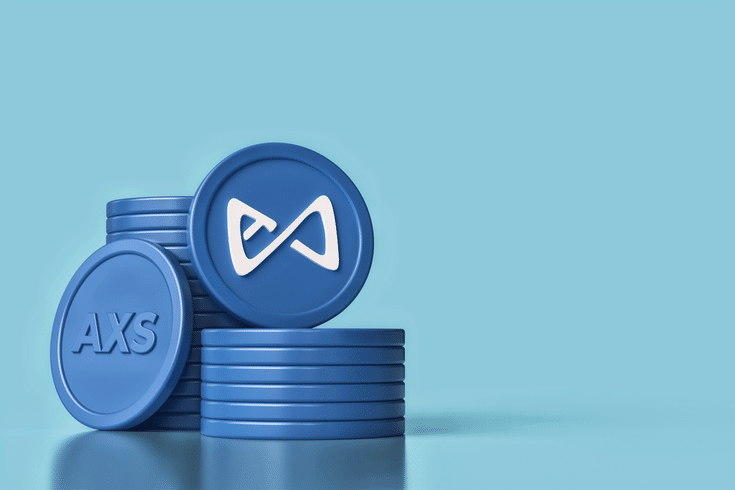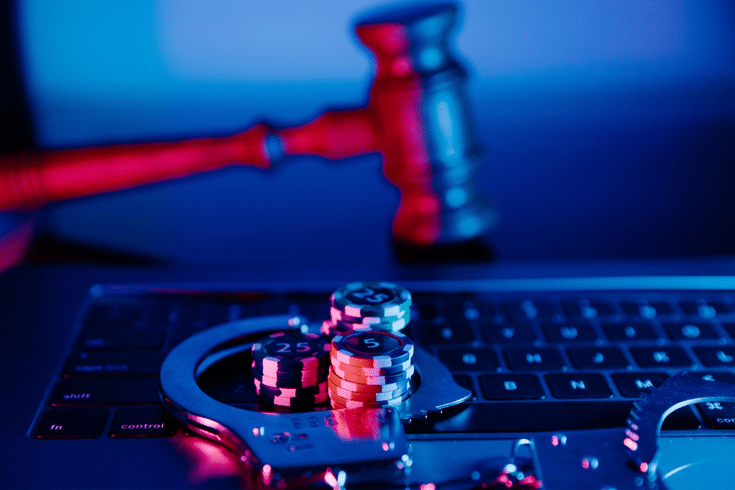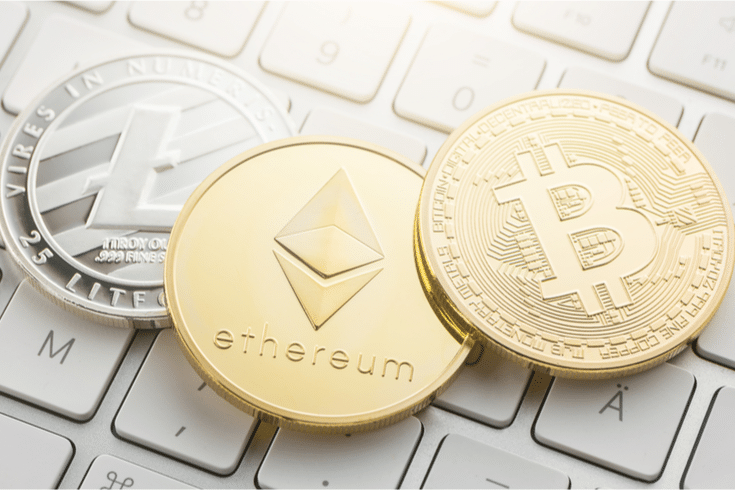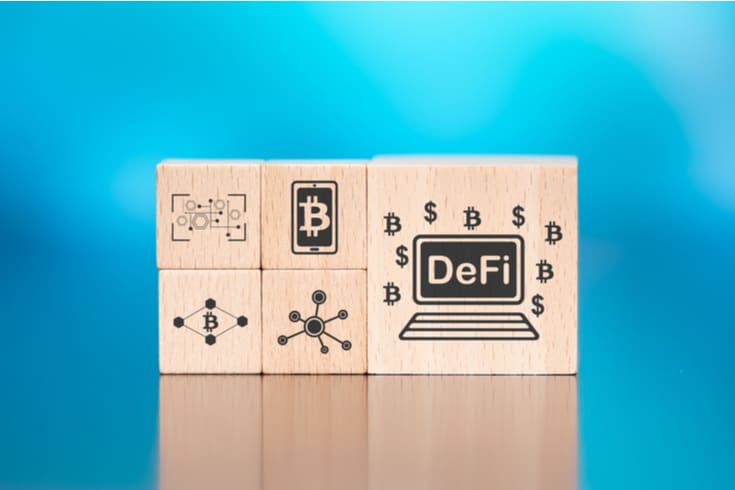The Legal Issues in Blockchains and NFT games

In recent years, there has been a rise in blockchain games (NFT games) that allow users to buy, sell, and manage in-game items using blockchain technology.
For example, “Axie Infinity”, a blockchain game released by Vietnamese company, SkyMavis, has become popular as it enables users to earn money by playing the game. Through this game, players can earn rewards like tokens, which can be used in the game or traded on the open market. Given the impact of the COVID-19 pandemic on income levels, some players in the Philippines are utilizing this game to supplement their daily earnings. As a result, interest in blockchain games has been on the rise, with expectations that it will continue to gain popularity in the future.
In this article, we will dive into the intricacies of blockchain games and explore the legal challenges they pose in Japan.
What a blockchain game is

Blockchain technology is a type of database technology that treats chunks of data as blocks and subsequently stores the data by connecting the blocks like a chain.
This technology has the capability of safeguarding data from destruction or unauthorized access, making it ideal for crypto currency like Bitcoin.
Blockchain games are games that utilize blockchain technology to enable the exchange, purchase, and sale of in-game items and characters.
Blockchain games are also known as Non-Fungible Token (NFT) games.
Traditional games offered players the opportunity to acquire in-game coins and points, however, its use was limited to the range of the game.
On the other hand, NFTs obtained in blockchain games can be exchanged for actual currency.
Blockchain games and NFTs
In blockchain games, items and characters can be traded as Non-Fungible Tokens which are linked to the data, rather than the data of the items or characters limited to the game themselves.
“NFT” stands for “Non-Fungible Token” and is traded on the NFT market.
NFTs have a similar role that of data certificates. Since digital data can be easily duplicated, proving its authenticity is difficult. However, by linking NFTs, authenticity of the data’s originality can be proved.
Blockchain Games and Japanese Premium Representation Law
The Act against Unjustifiable Premiums and Misleading Representations in Japan is a law designed to protect consumers from misrepresentation of goods and services and excessive premiums. In this paragraph, we will explain how this law applies to blockchain games.
A case of misrepresentation under the Act on Premiums and Misleading Representations in Japan
There are two distinct types of misrepresentation: “misrepresentation of quality” and “misrepresentation of advantage.” “Misrepresentation of quality” pertains to instances where the quality, standards, or other aspects of goods and services are misrepresented. On the other hand, “misrepresentation of advantage” occurs when transaction conditions like the price of goods and services are misrepresented.
For instance in blockchain games, misrepresenting NFT transfers from the the owner of the digital data to another player, or misrepresenting that a large fee would be placed on the player, and the like may constitute misrepresentation.
Please make sure to avoid any misleading information in advertisements or in the terms of use for blockchain games that could potentially misguide consumers.
Cases corresponding to excessive premiums under the Act against Unjustifiable Premiums and Misleading Representations in Japan
Under the Act against Unjustifiable Premiums and Misleading Representations, the term “Premiums” as used in this Act must satisfy the conditions listed below:
- used as a means to induce customers
- a means of business transaction involving goods of services
- any article, money, or other sources of economic gain.
If the item in question is classified as a “premium,” there are certain limitations on the maximum amount of premiums that can be offered. It should be noted that the Consumer Affairs Agency has the power to regulate or even prohibit the provision of premiums that exceed this limit.
Premiums are divided into three categories: General Sweepstakes, Joint Sweepstakes, and Total Sweepstakes, each with its own limit.
Regarding the definition of premiums, “provided by the business operator accompanying the transaction of its own products and services,” gachas such as blockchain games are considered to be naturally included in the transaction and therefore do not fall under the definition of “offered incidental to a transaction.
The practice of “complete gacha,” which involves selling and collecting multiple types of letters, pictures, symbols, etc. in order to obtain special items, is strictly prohibited. This is due to the fact that it may be considered a form of “card matching” under the Premiums and Misleading Representations Act, and therefore deemed illegal. As a responsible business, we must ensure we adhere to all relevant laws and regulations.
“Complete gacha” in online games and premium regulations under the Act against Premiums and Misleading Representations (May 18, 2012 Consumer Affairs Agency Notification).
Login rewards received upon purchasing paid NFTs, as well as rewards granted to high-ranking players, may be classified as “premiums”. Whether or not an item qualifies as a “premium” is subject to individual and specific evaluation.
When hosting a blockchain game competition and offering NFTs as prizes, if the recipients of these rewards can be deemed professional players, the rewards would then be classified as “work rewards.” As a result, this would not fall under the category of premiums.
Penalties for violating the Act against Unjustifiable Premiums and Misleading Representations in Japan
The Consumer Affairs Agency in Japan will initiate an investigation in the event of suspected violations of the Act against Unjustifiable Premiums and Misleading Representations. Should a violation be confirmed, the Agency may issue administrative guidance or a countermeasure order. Non-compliance with the order may lead to fines of up to 300 million yen.
Furthermore, there are instances where companies may be issued surcharge payment orders. Noncompliance with the Act against Unjustifiable Premiums and Misleading Representations can lead to substantial financial and reputational damage for businesses.
Blockchain Games and Gambling

In accordance with Articles 185 and 186 of the Japanese Penal Code, gambling is considered a criminal offense. Our current objective is to determine whether blockchain games and NFT games can be classified as forms of gambling.
Can blockchain games be considered gambling?
“Gambling” is defined as an activity where two or more individuals bet money or other items of value and compete against each other in a game of chance to determine the winner or loser.
“If bets are solely made for temporary entertainment purposes such as meals, drinks, and the like, then gambling does not apply even if all other conditions are met.”
In order for a crime to be considered gambling, it must involve at least two individual players. Therefore, if an individual creates a game and plays it alone, it does not meet the criteria to be considered “gambling”.
If you place a wager on something without any inherent value, such as an NFT, and it is deemed to have property value, you may be found guilty of gambling. It is important to be aware of the potential legal ramifications before engaging in such activities.
Players who participate in NFT games have a higher chance of owning valuable properties, especially if they earn NFTs for redemption. Even if you can only trade in-game currency, NFTs may still be perceived to have property value, so it is important to exercise caution.
The phrase “By chance victory or defeat” may not only apply to cases where a player’s NFT is determined by gacha, but also when NFTs are only given to players who have cleared a specific game.
“Battle for profit and loss” refers to a scenario where multiple individuals take on the risk of potentially losing profits in a competitive game.
In the world of gaming, any game that features NFTs with a value that is lower than the amount spent on gachas is deemed to be “competing for gains and losses.”
On the other hand, if it is guaranteed that the NFT obtained from the gacha will have a value higher than the money spent by the player, or if the player can enjoy the game by using the NFT, there is no risk of losing money. As a result, it is unlikely that the act would be considered gambling, and therefore would not be a criminal offense.
As previously stated, betting solely on something intended for temporary entertainment purposes does not constitute a gambling offense. However, it remains unclear whether NFTs fall under this category, as there is no established legal precedent or consensus on the matter.
Gambling Penalties
If convicted of gambling, you may face a fine of up to 500,000 yen or imprisonment under Article 185 of the Japanese Penal Code.
Under Article 186 of the Japanese Penal Code, individuals found guilty of habitual gambling may face imprisonment with work for a maximum of three years. Additionally, those who operate gambling parlors or engage in gambling for profit may face imprisonment for a period ranging from three months to five years.
If gambling is found to be addictive, the offense will be treated seriously. Additionally, even if the act of gambling was only done once, it may still be considered addictive depending on factors such as the number of players or the amount of sales profit. Therefore, caution should be exercised.
Summary: Consult a lawyer about legal issues related to blockchain games
Blockchain games and NFT games have distinct characteristics that set them apart from traditional online games.
Legal risks can arise when advertisements are displayed and when benefits are attached. If you have any legal questions regarding blockchain games, we suggest that you consult with an IT-savvy lawyer as soon as possible.
“Our office provides guidance on implementing countermeasures.”
Monolith Law Office is a legal firm with a wide experience in specializing in IT, particularly in the realm of the Internet. We offer comprehensive support to businesses that deal with crypto assets and blockchain technology.
Category: IT





















